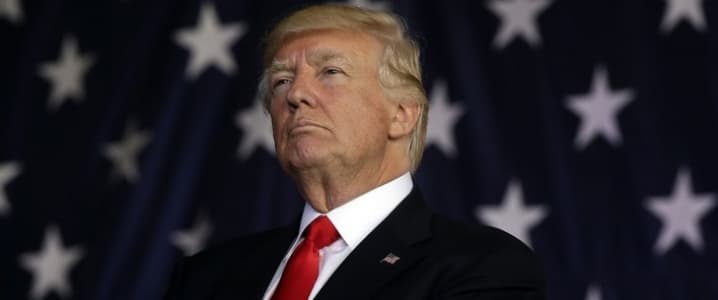Together, Russia and Saudi Arabia produce a fourth of the world’s oil. The laws of competitive international commodity trading have pit the two petrostates on opposite poles of the U.S.-Russia geopolitical rivalry. But a new era of American oil exports and ailing national budgets is pulling Moscow and Riyadh together in trying financial times.
President Barack Obama’s administration maintained a cold distance from Saudi Arabia in its final years. As the United States and its European allies began a war against the Islamic State in 2014, Saudi Arabia focused its military might on Yemen—a country on the Arabian Peninsula facing the brutal consequences of an extended Arab Spring. Iranian arms and funding reached the pockets of the Shiite Houthi rebels, who hoped to build a new regime in Yemen, to the chagrin of Wahabbi Saudi Arabia.
President Donald Trump’s White House has extended an olive branch towards Riyadh as the new State Department lays out its foreign policy agenda. But this new diplomatic program runs contrary to the KSA’s economic goals. American oil exports, reinstated back in December 2015, counter the effects of OPEC’s landmark agreement to lower bloc-wide output by 1.2 million barrels per day in an effort to alleviate an international supply glut. Related: Is The Aramco IPO On The Brink Of Collapse?
As a major oil exporter, Russia was invited to participate in the agreement when it was being discussed back in 2016. American exports were still limited to specific destinations back then, and U.S.-based companies had only just begun to secure supply contracts in Asian and European markets. Any threat to the success of the deal from the other side of the Atlantic seemed far-fetched just a year ago.
But the tables have turned. Washington doesn’t rely on oil profits to run its nation. Moscow and Riyadh do—and heavily so. A boost in active rigs in the Permian basin, as well as other areas in the north of the country, has put shale oil and gas in the center of Russo-American geopolitics. As Moscow approves an extension of its 300,000-bpd output drop commitment with OPEC, the U.S. department of energy eyes new markets for American fossil fuels. Energy Secretary Rick Perry made his rounds to Japan in May to open the world’s largest liquified natural gas (LNG) consumer’s doors to U.S.-drilled supplies. The carbon-light fuel is considered a gateway energy source for developed countries as grid systems shift to renewable and alternative power options.
In Europe, American infringement of Russian dominance in gas markets is even clearer. The European Union has faced off against Moscow regarding the Crimea annexation and the Syrian revolution in recent years, but Russian control over Europe’s energy supplies undermined the continent’s geopolitical leverage.
This new landscape puts Saudi Arabian interests in line with those of Russia. Both mega producers need to contain the growth of the outbound American fossil fuel industry, but the Iran issue remains a key point of contention between Riyadh and Moscow. The KSA is neck-deep in a showdown against Qatar for its involvement with Tehran on the South Pars gas field. New Crown Prince Mohammad bin Salman’s assertive stance locks the country in an irreconcilable rivalry with Iran. In contrast, Moscow stood by Iran through the latter’s experience as an international global pariah. Related: Oil Markets Fear Iraqi Escalation
So far, President Trump has announced Iran’s official decertification from the nuclear deal, which doesn’t dismantle the deal completely, but provides the Republican Congress a route to sanctions it didn’t have before. The White House also approved new sanctions against the country’s Revolutionary Guard last week. These new developments are bound to bring back the Tehran and Moscow alliance in full force, potentially alienating the KSA in its anti-Iran stride.
The exact dynamics of the Moscow-Riyadh axis are still being forged in OPEC meetings around the world. Time will tell whether Saudi wants this new ally badly enough to reduce its belligerence against Iran, if that’s what the future of the relationship comes to.
By Zainab Calcuttawala for Oilprice.com
More Top Reads From Oilprice.com:
- Mexico Locks In $46 Per Barrel In 2018 Oil Hedge
- Major Energy Importer Bets $10 Billion On Natural Gas
- Goldman: U.S.-Iran Standoff Is A Long-Term Threat To Oil Supply


















The West and esp USA should take lessons from the principles and policies of 'detente' as advanced and practiced by leaders in West Germany (as it was then) and France with a then powerful and hegemonic USSR! The Republic of Russia has more in common with USA and the West than the rest of the world!
Miss Calcuttawala, I have high hopes that you can provide different and alternative views on Russia's relations with USA and the West. I always enjoy reading your articles and am hopeful that you can explore different perspectives in contrast to the mainstream ideas, thoughts and analyses! Thank you.